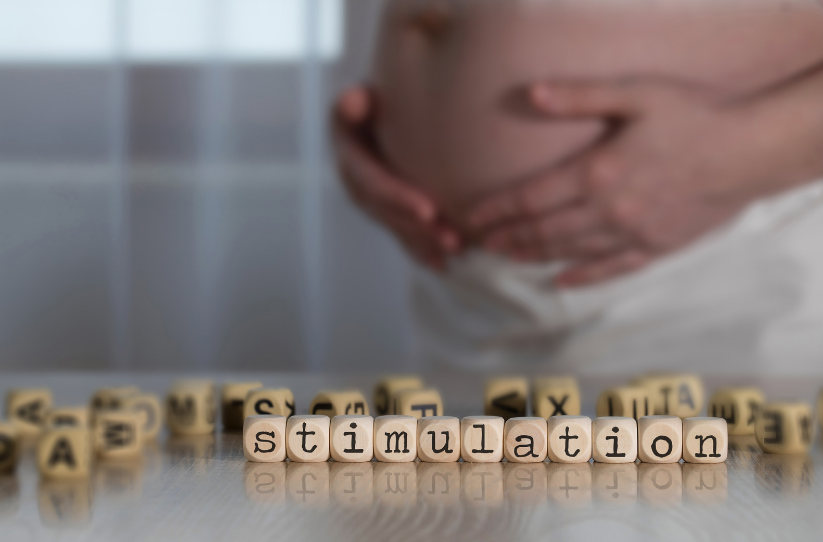Kirsten Fisch, MSN, RNC-MNN, IBCLC, LCCE Kirsten is a women's health nurse who specializes in high-risk pregnancy and postpartum care. She is certified in Maternal Newborn Nursing, a board-certified lactation consultant (IBCLC), and a Lamaze Certified Childbirth Educator. She works with women from conception through the postpartum period. Passionate about empowering women throughout their reproductive journeys, Kirsten combines evidence-based care with compassionate support to promote the health and well-being of mothers and babies.
Bringing a new life into the world is one of the most transformative, beautiful, and challenging experiences a person can go through. And while baby showers, Instagram birth announcements, and picture-perfect nursery setups might make early parenthood look like a dream, the truth is often far more complicated. For many new parents, the postpartum period brings not just physical healing, but emotional turbulence. Add to that the modern-day pressure to “do it all” and “be perfect,” and you have a recipe for profound stress on mental health.
The Myth of the Perfect Parent
It starts early. The advice rolls in from the moment you announce a pregnancy—unsolicited, contradictory, and relentless. Social media only amplifies it. Scroll through your feed and you’ll find perfectly curated family photos, moms back in pre-pregnancy jeans two weeks after delivery, and posts about breastfeeding, co-sleeping, baby-led weaning, and Montessori toys that make you question whether you’re doing anything right.
Perfection is not only impossible—it’s harmful. Society’s standard is not only unrealistic but deeply unfair. It tells new parents (especially mothers) that they must be endlessly patient, deeply fulfilled, effortlessly nurturing, and physically healed within weeks. The reality? Most are navigating sleep deprivation, hormonal shifts, healing bodies, feeding challenges, identity shifts, and relationship changes—all at once.
What Postpartum Mental Health Looks Like
It’s normal to feel a wide range of emotions after giving birth. Some parents experience the “baby blues”—mood swings, weepiness, anxiety, and difficulty sleeping—which often resolve within two weeks. But for many, the feelings are more intense and persistent.
Postpartum depression, anxiety, OCD, and even psychosis are actual conditions that affect 1 in 5 mothers (and fathers are not immune either). These are not signs of failure or weakness. They are medical conditions that deserve understanding, support, and treatment.
Yet so many parents suffer in silence. Why? They’re afraid—afraid of being judged, of being seen as ungrateful or incapable, of being the only ones who feel this way.

Breaking the Silence, Embracing the Mess
We must start normalizing new parenthood’s messy, complicated, and beautiful reality. Here’s how:
- Talk about it. Share your story if you’re comfortable. Speak honestly with your loved ones. Let others know that it’s okay not to be OK.
- Ask for help. This is a season when support is essential—not a luxury. Whether it’s a therapist, a support group, a postpartum doula, or just a friend to hold the baby while you nap, reach out.
- Challenge the narrative. The perfect parent doesn’t exist. What does exist is the present parent—the loving parent, the trying-every-day parent.
- Limit the comparison game. Social media is a highlight reel, not real life. Curate your feed. Follow accounts that make you feel seen, not small.
- Prioritize your mental health. You can’t pour from an empty cup. Your well-being is not only valid but also vital for your child’s well-being.
You Are Enough
There’s no trophy for being the “best” parent, because the best parent is the one who shows up, tries, and loves fiercely—even on the hard days. So if you’re in the thick of it—crying in the shower, questioning every decision, feeling isolated or overwhelmed—know this: you’re not alone. And you’re doing better than you think.
Parenthood isn’t about perfection. It’s about connection, compassion, and courage. Let’s drop the unrealistic expectations and support each other in the messy, miraculous reality of raising tiny humans.
Resources for Support:
- Postpartum Support International (postpartum.net)
- National Maternal Mental Health Hotline: 1-833-9-HELP4MOMS
- Therapy apps like BetterHelp or Talkspace
- Local postpartum support groups and community resources
Let’s keep the conversation going. What helped you navigate postpartum mental health? What do you wish someone had told you?
Disclaimer:
The Mother Baby Nurse does not endorse or promote any specific products or services, nor do we participate in affiliate marketing. Our goal is to provide non-biased, evidence-based information about women’s health and wellness. Any links to commercial companies or products are shared purely for informational purposes. We encourage all readers to research and consult with qualified professionals to make the best decisions for themselves and their loved ones.

Kirsten Fisch, MSN, RNC-MNN, IBCLC, LCCE Kirsten is a women's health nurse who specializes in high-risk pregnancy and postpartum care. She is certified in Maternal Newborn Nursing, a board-certified lactation consultant (IBCLC), and a Lamaze Certified Childbirth Educator. She works with women from conception through the postpartum period. Passionate about empowering women throughout their reproductive journeys, Kirsten combines evidence-based care with compassionate support to promote the health and well-being of mothers and babies.






